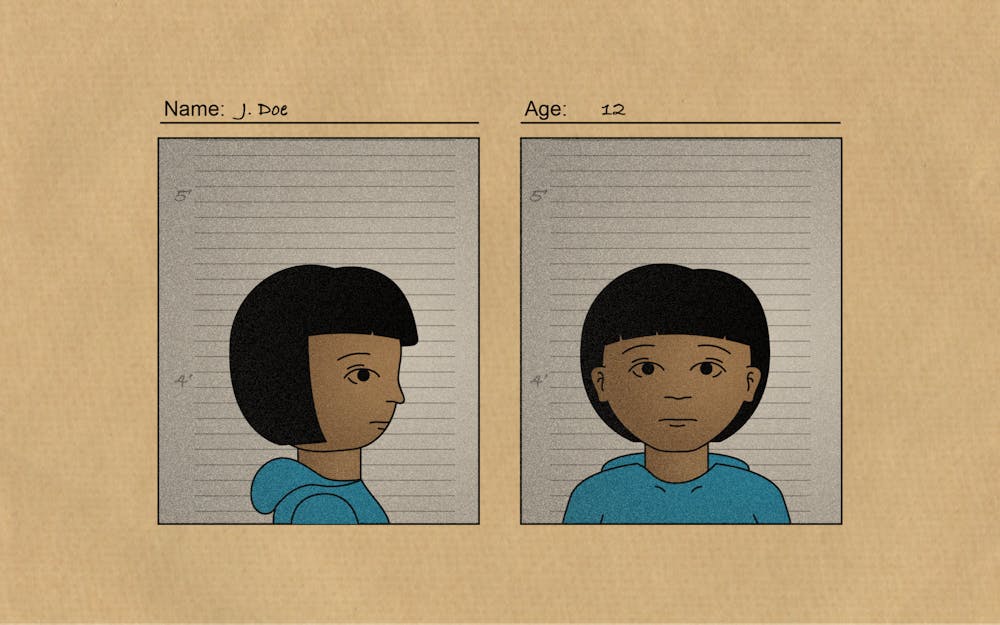A staggering 60,000 children are incarcerated at any given moment in the U.S. In Indiana, 1,600 children were incarcerated in youth facilities as of 2018, representing only a small portion of the total number of children involved in Indiana’s carceral system.
Indiana’s justice system overly incarcerates children, subjecting them to a lifetime of increased risk of physical and mental health issues, high rates of recidivism and reincarceration and comparatively worse educational and employment outcomes in adulthood.
On March 24, the Indiana House of Representatives passed SB 368 out of committee unanimously. It calls for the automatic expungement of juvenile records, prohibits the sentencing of children to adult facilities and establishes a process for youth competency evaluations. The legislation will be reviewed by the House Ways and Means committee before being voted on by the Indiana House. Indiana’s justice system is hostile toward young people, and passing SB 368 would begin to marginally improve their protections.
The legislation calls for the automatic expungement of juvenile records for certain offenses, not including the use of a firearm to commit a crime, possession of a handgun without a license or any crime considered a felony if committed by an adult. This provision would remove children’s criminal records from public access or entirely destroy the records.
Criminal records can prevent children from obtaining employment, professional licensure, federal financial aid for education and can render a child and their family ineligible for public housing. Sending a child into society without any state support is a cruel continuation of their sentence. Indiana must join the 15 states that already have automatic juvenile expungement laws in place.
Additionally, the legislation bars children from being held in adult prisons unless the court finds doing so to be “in the best interests of justice.” At its least, this prevents children from being incarcerated with adults while awaiting a trial.
On any given day, 10,000 children are incarcerated in adult facilities across the nation. These children are 36 times as likely as those in youth facilities to die by suicide, face an increased risk of sexual abuse and are 34 times as likely to be incarcerated again in their lifetime.
“Once a juvenile is waved through to adult prison, that is sort of like a determination that this child is beyond redemption and so this bill sort of prevents children from being put beyond redemption,” Jody Madeira, professor at IU Maurer School of Law, said.
The legislation also outlines a specific competency process to be conducted by a psychiatrist or psychologist not employed by the carceral facility to determine whether a child is fit to stand trial. Indiana is currently one of only six states to not have separate competency procedures for children and adults.
It is important to note that Indiana is likely interested in passing this legislation to avoid losing approximately $800,000 in federal funding for non-compliance with the Juvenile Justice Reform Act, Stephanie Whitehead, associate professor of criminal justice at IU East, said. This federal legislation was passed three years ago, and Indiana is finally considering complying to save its wallet, so be wary of giving our legislators too much credit.
While this legislation takes an important step toward making children safer within carceral systems, the ultimate goal must be preventing children from being incarcerated at all.
Entering the carceral system results in irreversible harm to a child and perpetuates racial inequality. In Indiana, the rate of Black children in custody was over four times as high as the rate of white children in custody as of 2015.
“I know from my research that at the arrest level, African American youth will be arrested more likely than white juveniles, so they are being funneled into the system that way, and I don’t think this bill is necessarily going to ease up that disparity,” Whitehead said. “You have to deal with policing, the school-to-prison pipeline.”
Passing SB 368 is a necessary and long overdue step towards protecting children in carceral systems and should be understood as part of a broader effort to prevent Americans from entering such systems at all.
Maddie Butler (she/her) is a sophomore studying international law and institutions and Arabic. She is the Director-General of Indiana Model United Nations.






